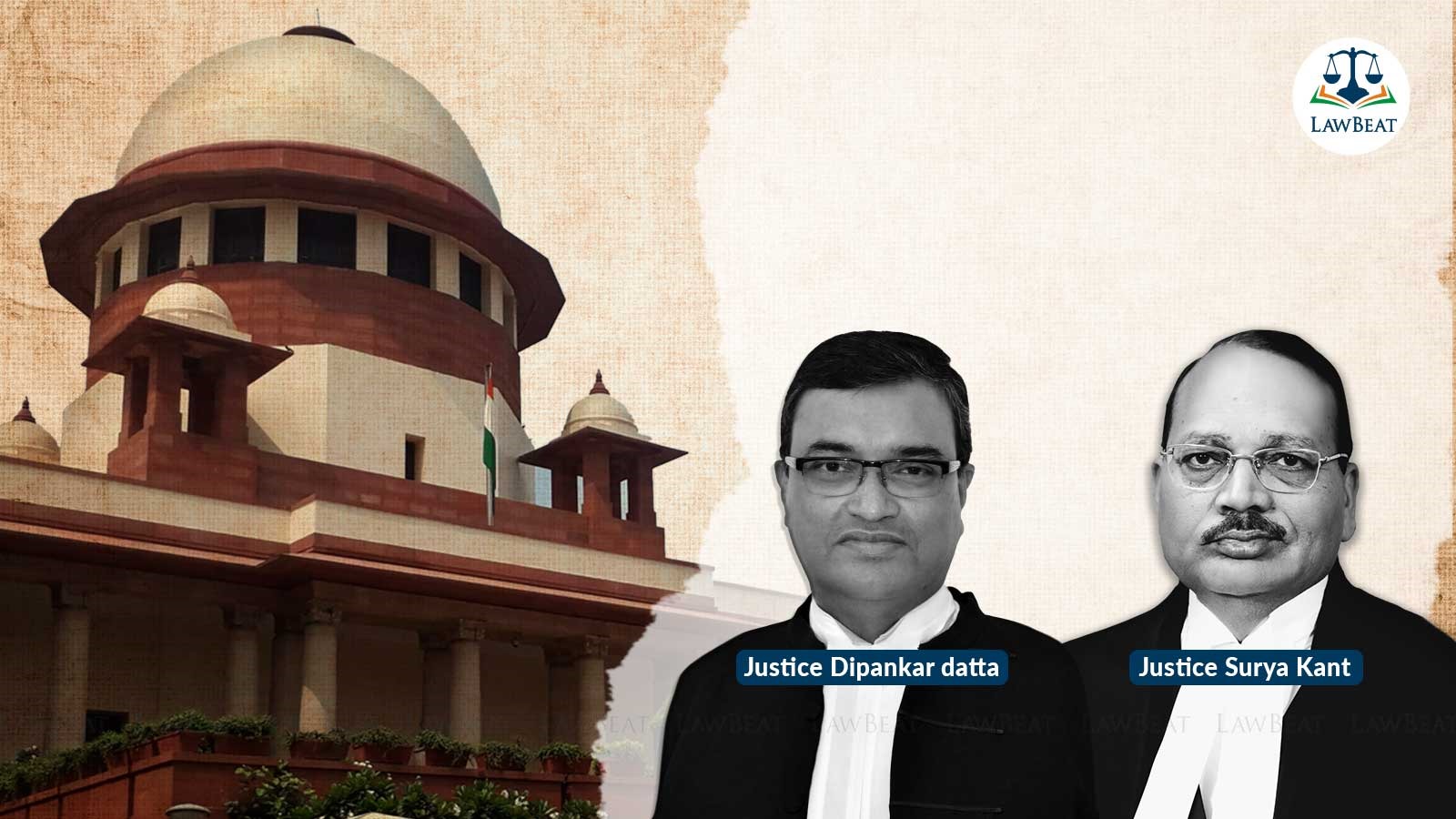'Killed alcoholic son-in-law in crude attempt to mend his ways': SC modifies man's conviction from murder to culpable homicide

"The appellant’s motive at best was to prevent the deceased from misbehaving with his daughter after consuming alcohol," the bench noted
The Supreme Court has modified conviction of a man from murder to culpable homicide not amounting to murder and reduced his sentence from life term to 10 years imprisonment for killing his own son-in-law due to persistent provocation as the deceased was alcoholic and used to assault and humiliate his daughter.
"The appellant and the deceased were the only ones present in the house at the time of occurrence. The daily consumption of liquor by the deceased was an apparent factor that exhorted the appellant to assault the deceased not with an intent to commit his murder but only to force the deceased to mend his ways and mend his drinking problem," a bench of Justices Surya Kant and Dipankar Datta said.
The court also noted that appellant, Markash Jajara, seemingly attacked the deceased without any intention to commit his murder.
"It was rather a crude attempt to forcibly change the deceased’s habits and help the appellant’s daughter to have peaceful and dignified life. The appellant’s motive at best was to prevent the deceased from misbehaving with his daughter after consuming alcohol," the bench said.
The court pointed out that the Trial Court as well as the High Court had heavily relied upon the statement of the daughter of the appellant, Sarani Boria to hold him guilty of committing the murder of his son-in-law predominantly in view of his purported confession made before his daughter.
However, it said that the statement by Boria needs to be appreciated in its entirety. In her cross examination, she has candidly admitted that her husband was an alcoholic and he used to quarrel with her and also with the appellant after consuming alcohol. She has affirmatively deposed that the deceased used to ill-treat her after consuming alcohol.
"The appellant’s motive at best was to prevent the deceased from misbehaving with his daughter after consuming alcohol. The manner in which the occurrence appears to have taken place inside the house, does indicate that the appellant lost his self-control on account of persistent provocation and suddenly thrashed his son-in-law with the bamboo stick. It is a case where provocation seems to be brewing up since the deceased shifted to the appellant’s house. It acquired enormous gravity with each recurrence of humiliating stances of the appellant’s daughter. The fatal occurrence was seemingly the final culmination of loss of the power of self-control," the bench said.
The court also took into account the fact that the deceased was living as a 'ghar javai' with the appellant, which sufficiently indicated that the appellant did not have any pre-meditated intention to commit the murder of his son-in-law.
"But for the continuous harassment of the appellant’s daughter by the deceased who was a habitual drunkard, the appellant would not have lost his senses suddenly. The simmering discontent of a frustrated and hapless father unfortunately led him to strike the deceased with a bamboo stick. The series of provocative acts attributable to the deceased indeed laid the foundation of sustained provocation," the bench said.
The court held that the act of the appellant in causing injuries to the deceased fell within the expression of 'culpable homicide' which did not amount to 'murder’.
It allowed the appeal in part and also modified the sentence from life imprisonment to 10 years jail.
The Gauhati High Court had on March 12, 2019 upheld the Jorhat sessions court order of October 3, 2016 holding the appellant guilty of murdering his son-in-law Markush Borja and sentenced him to life imprisonment.
Case Title: Markash Jajara Vs State of Assam & Anr
